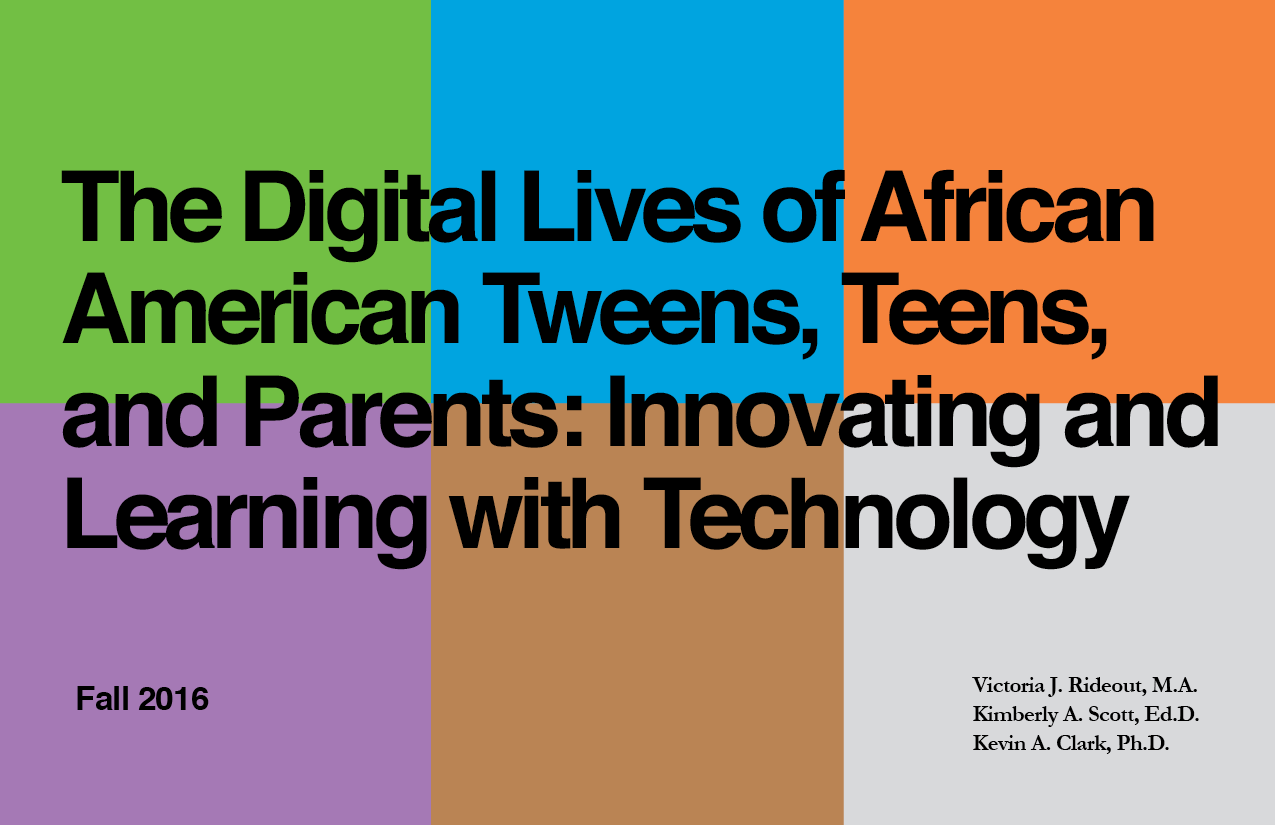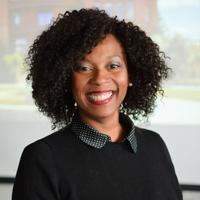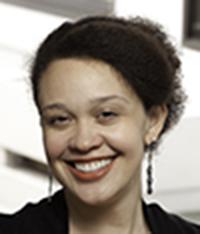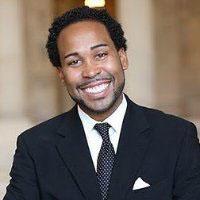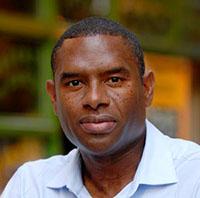Our Mission
The purpose of this work is to explore the educational impact of technology and digital media on African American families in non-school environments such as home and community. Through this study we hope that: program developers, policy makers, funders and the general public will acquire a more complete picture of intragroup differences among African Americans and their technology use; deepen understanding of how to better engage this group in effectively obtaining 21st century technical skills; identify new recruitment and retention strategies to attract and retain African Americans becoming technology innovators; engage understudied individuals beyond the typical grassroots leaders; and consider different methods of collaborating with community partners.
This project will administer a national survey, conduct focus groups, and create a number of digital case studies as a way of broadening the impact of our work to reach audiences beyond the typical persons, such as scholars, researchers, and higher education experts, to include community grasstops and grassroots leaders, teachers, families, and so forth. To this end, we hope to work with community groups, policy makers, researchers, and media professionals to release annual results.
Two objectives shape this project:
1) To understand to what degree and in what ways are African American families using and learning with technology outside of formal learning environments.
2) To identify the mediating factors enabling African American families to use technology—namely digital technology including computers, tablets, smartphones, and game consoles-- for learning.
This website is based on research funded in part by the Bill & Melinda Gates Foundation. The findings and conclusions contained within are those of the authors and do not necessarily reflect positions or policies of the Bill & Melinda Gates Foundation.
Report
Videos
People
Dr. Kimberly A. Scott is an Associate Professor in the Women and Gender Studies Department at Arizona State University (ASU) and Founder/ Executive Director of a National Science Foundation-funded program, CompuGirls. Prior to becoming an academic, Scott worked as an educator with international and national institutions including a center for girls in Chiang Mai Thailand, the Educational Law Center in Newark, New Jersey, and the National Museum of African Art-Smithsonian. Along with publications in Journal of Negro Education, International Journal of Qualitative Studies in Education, International Journal of Gender, Science, and Technology, and Feminism and Psychology, to name a few, Kimberly is co-author of the Rowman and Littlefield book Kids in Context and co-editor of the IAP published book, Research in Urban Educational Settings: Lessons Learned and Implications for Future Practice. Currently, she is working on two new booklength projects: COMPUGIRLS: Becoming Ourselves in This Digital Age and Women Education Scholars and Their Children’s Schooling which will be published by Routledge. Having written and successfully won over $4 million in grant funding to support research about and programs for girls of color, digital media use, and/or intersectionality, Scott was named in 2014 as a White House Champion of Change for STEM Access. The same year, the publication Diverse Issues in Higher Education identified Kimberly and one of the top 30 women in higher education. Dr. Scott earned her B.A. from Smith College in Art History and French Literature, an M.S. from Long Island University in Curriculum and Instruction/Elementary Education and her Ed.D. from Rutgers University in Social and Philosophical Foundations of Education.
Dr. Kevin Clark is a Professor in the Learning Technologies division and the Director of the Center for Digital Media Innovation and Diversity (CDMID) in the College of Education and Human Development (CEHD) at George Mason University. He holds both bachelors and masters degrees in computer science from North Carolina State University, and a Ph.D. in Instructional Systems from Pennsylvania State University. Dr. Clark's research focuses on the role of interactive and digital media in education, broadening participation in STEM careers and disciplines, and issues of diversity in children’s media. Kevin has more than 20 years experience as a designer, advisor, and consultant to informal learning and media organizations such as: National Park Service, Public Broadcasting Service (PBS), Corporation for Public Broadcasting (CPB), Disney Junior, Jim Henson Company, DHX Media, Toca Boca, Hasbro, and Amazon Studios.
Vicky Rideout, M.A., is president of VJR Consulting. The firm conducts quantitative and qualitative research about children, media and families, primarily for academic and non-profit institutions. Ms. Rideout is also the Editor for reviews and commentaries at the Journal of Children and Media. From 1997-2010 she was director of the Kaiser Family Foundation’s Program for the Study of Media and Health. Prior to that, she founded and ran the Children & Media program at the children’s advocacy group Children Now. She has directed numerous studies about media use among children and teens, including the decade-long Generation M study for the Kaiser Family Foundation; Zero to Eight: Children’s Media Use in America for Common Sense Media; Parenting in the Age of Digital Technology for Northwestern University’s Center on Media and Human Development; and Learning at Home: Families’ Educational Media Use for the Joan Ganz Cooney Center at Sesame Workshop. She is currently at work on a study of teens’ use of the internet and mobile technology for health information. Her research has been published in peer-reviewed journals such as Pediatrics, American Behavioral Scientist, the Journal of Marketing and Public Affairs, and the Journal of the American Medical Association. Prior to her work on children and media, Ms. Rideout spent a decade working in government and politics, including as a legislative assistant on Capitol Hill, and a campaign manager, domestic policy adviser, and speechwriter to local and national officeholders and candidates. More recently, she was the director of speechwriting for the 2004 and 2008 Democratic National Conventions. Ms. Rideout received her BA with honors from Harvard University and her MA from the Maxwell School of Public Affairs at Syracuse University. You can learn more about her work at www.vjrconsulting.com.
Chun is a doctoral student in Counseling Psychology at Arizona State University. She served as a Graduate Research Aide for the Gates Foundation Grant at CGEST. Chun completed her bachelor’s degree in psychology at Fudan University, Shanghai, China and her master’s degree in psychology at Arizona State university. In addition to CGEST, Chun works with Dr. Ashley Randall on understanding how individuals’ coping and emotion regulation strategies are associated with their well-being across the life-span from a multicultural framework. She also works with Dr. Bianca Bernstein on examining risk factors for female doctoral students' persistence in STEM programs. Chun is passionate about empowerment of women and advocacy for gender equity in professional development opportunities.
M. Liz Andrews is an artist, curator and student in the doctoral program in Cultural Studies at George Mason University. Her scholarship focuses on visual culture, politics, and blackness. Liz received her B.A. in American Studies from Wesleyan University and M.A. in Arts Politics from the Tisch School of the Arts at NYU. She is originally from Denver, Colorado and lives in Washington, D.C.
Nathaniel Boettcher is a junior at Arizona State University pursuing concurrent undergraduate degrees in Design Management from the Herberger Institute for Design and the Arts and Spanish Literature and Culture from the College of Liberal Arts and Sciences. Nathaniel is committed to advocating for under-represented populations in his community and hopes to ensure greater access to opportunity for all.
Jerlando F. L. Jackson is the Vilas Distinguished Professor of Higher Education at the University of Wisconsin-Madison. He also serves as the Coordinator for the Higher, Postsecondary, and Continuing Education Program and as a Faculty Affiliate for Wisconsin Center for the Advancement of Postsecondary Education. In addition, he serves as Director of Wisconsin’s Equity and Inclusion Laboratory (Wei LAB). The mission of Wisconsin’s Equity and Inclusion Laboratory (Wei LAB) is to design, conduct, and disseminate research that informs policymakers, practitioners, and concerned citizens on how to best promote equitable and inclusive learning and work environments in education in general, and higher education in particular. Dr. Jackson’s central research interest has been to explore workforce diversity and workplace discrimination in higher education. More recently, he has focused on interventions designed to broaden participation for underrepresented groups in the scientific workforce. He is credited with over 100 publications, 175 presentations, and has published the following books- Introduction to American Higher Education for Routledge (2010), Ethnic and Racial Administrative Diversity: Understanding Work Life Realities and Experiences in Higher Education for Jossey Bass (2009); Strengthening the African American Educational Pipeline: Informing Research, Policy, and Practice for SUNY-Albany Press (2007); and Toward Administrative Reawakening: Creating and Maintaining Safe College Campuses for Stylus Publishing (2007).
As executive director of the White House Initiative on Educational Excellence for African Americans, David J. Johns will work to identify evidence-based best practices to improve African American student achievement—from cradle to career. The initiative will work across federal agencies and with partners and communities nationwide to produce a more effective continuum of education programs for African American students. Prior to joining the Department, Johns was a senior education policy advisor to the Senate Committee on Health, Education, Labor and Pensions (HELP) under the leadership of Sen. Tom Harkin, D-Iowa. Before working for the Senate HELP committee, under Chairman Harkin, Johns served under the leadership of the late Sen. Ted Kennedy, D-Mass. Johns also was a Congressional Black Caucus Foundation Fellow in the office of Congressman Charles Rangel, D-N.Y. Johns has worked on issues affecting low-income and minority students, neglected youth and early childhood education, and Historically Black Colleges and Universities (HBCUs). His research as an Andrew W. Mellon Fellow served as a catalyst to identify, disrupt and supplant negative perceptions of black males, both within academia and society. Johns is committed to volunteer services and maintains an active commitment to improve literacy among adolescent minority males. Johns obtained a master’s degree in sociology and education policy at Teachers College, Columbia University, where he graduated summa cum laude while simultaneously teaching elementary school in New York City. He graduated with honors from Columbia University in 2004 with a triple major in English, creative writing and African American studies.
I joined the School of Communication and Information at Rutgers University as Assistant Professor of Communication in 2009. I hold an M.A. and Ph.D. from the Annenberg School for Communication and Journalism at the University of Southern California, and a B.A. in Communication and Urban Education from UCLA. I examine how immigrant parents and their children address communication challenges related to social incorporation in the United States. In my research, I uncover strategies that these families develop to learn about and understand their local environments and to address their needs. I have explored how immigrant families navigate interactions with U.S. social institutions (schools, healthcare facilities, social services, and courts), and how immigrant parents' and their children's media connections, broadband adoption, and engagement with digital technologies affect their access to a range of social opportunities. I teach undergraduate courses in Family Communication, Mediated Communication Theory, Communication Research, and Children & Media, as well as graduate courses in Ethnography and Communication & Community Wellness.
Dr. Allison Scott is the Director of Research and Evaluation at Level Playing Field Institute, a leading research and Social Impact organization focused on structural and social/psychological barriers facing underrepresented students of color in pursuing and persisting in the fields of Science, Technology, Engineering, and Mathematics (STEM), and the effectiveness of interventions and initiatives to improve STEM outcomes among students from underrepresented backgrounds. Dr. Scott's research examines the influence of perceived barriers and stereotypes in the sciences, the double-bind facing female students of color, and the effectiveness of research-based interventions in improving STEM outcomes for underrepresented groups. In addition, Dr. Scott led the longitudinal evaluation of LPFI’s pre-college STEM intervention programs and was Principal Investigator for an NSF CE21 grant to increase access, success, and preparation in computer science for underrepresented students in California. Dr. Scott holds a Ph.D. in Education, with a specialization in School Psychology, from the University of California, Berkeley and a Bachelor’s degree in Psychology from Hampton University.
Aaron Smith is a senior researcher at the Pew Research Center. He is an expert in the growing impact of mobile technologies, the role of the internet in connecting Americans to political and civic issues, and ongoing demographic trends in technology adoption. He has conducted recent research on views on the future of technology, African Americans and technology use, and online dating and relationships. Smith is a native Texan and received a bachelor’s and a master’s in Public Affairs from the University of Texas at Austin.
S. Craig Watkins studies young people's social and digital media behaviors. He is a Professor at the University of Texas, Austin, in the department of Radio-Television-Film. Craig is also a Faculty Fellow for the Division of Diversity and Community Engagement at the University of Texas at Austin. He received his PhD from the University of Michigan. Craig is the author of three books. His most recent work, The Young and the Digital: What the Migration to Social Network Sites, Games, and Anytime, Anywhere Media Means for Our Future (Beacon 2009), explores young people's dynamic engagement with social media, games, mobile phones, and platforms like Facebook. His other books include Hip Hop Matters: Politics, Pop Culture and the Struggle for the Soul of a Movement (Beacon Press 2005), and Representing: Hip Hop Culture and the Production of Black Cinema (The University of Chicago Press 1998). He also blogs for the Huffington Post and DML Central, the online presence for the Digital Media and Learning Research Hub located at the system wide University of California Humanities Research Institute and hosted at the UC Irvine campus.
